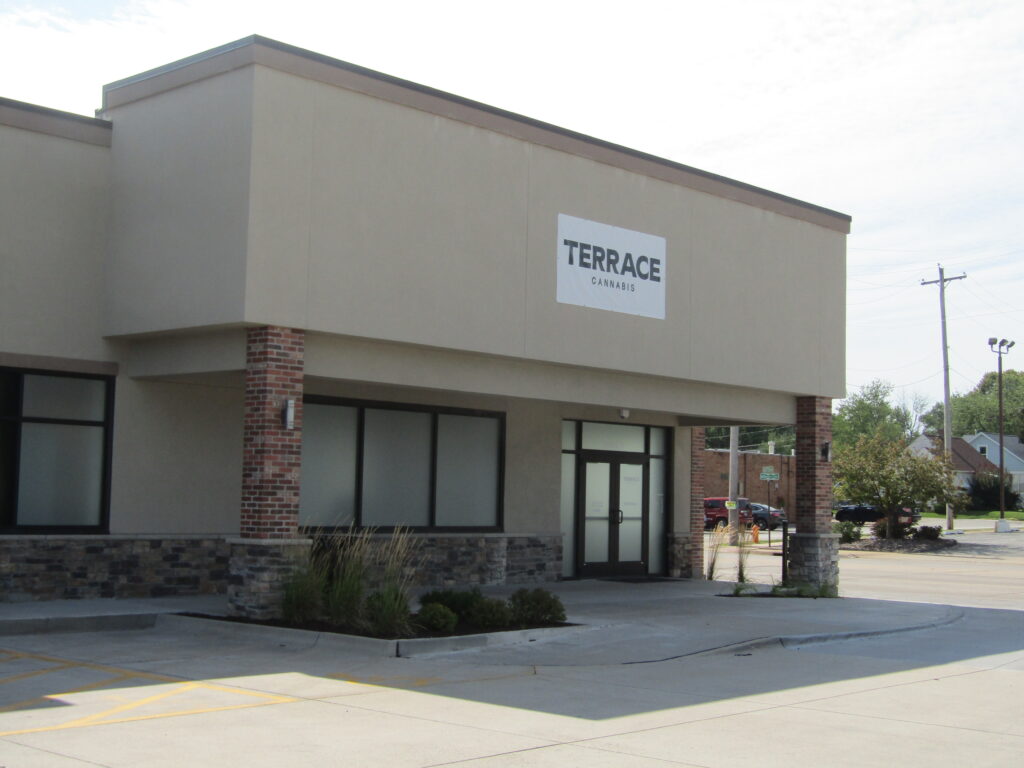Illinois unemployment steady in September, IDES said
QCBJ News Staff

Terrace Dispensary, Moline's first cannabis dispensary, is open for business at 2727 Avenue of the Cities, Suite 7. CREDIT KENDA BURROWS
Before dashing off to a ribbon cutting at Moline’s second cannabis dispensary today, Dec. 8, Mayor Sangeetha Rayapati was telling reporters that $300,000 to $500,000 in tax revenue from its first legal pot shop could be lost.
In addition, the city’s potential tax dollars from the first several months of operation at the newly opened Revolution Dispensary could be forfeited…

Get immediate, unlimited access to all subscriber content and much more.
Learn more in our subscriber FAQ.
Do you want to read and share this article without a paywall?
